There's just two games remaining of this seemingly never-ending rugby season.
More than a year on from the start of the World Cup training camp, and 11 months since Ireland opened up their warm-up campaign against Italy at the Aviva Stadium, Andy Farrell and his squad find themselves in Johannesburg, preparing for a Test series against the double world champions South Africa.
It's been a season of ups and downs, like all of them are, but on reflection this one has probably seen more downs than ups; a second successive Six Nations title can't be ignored, but neither can the late defeat to England which cost Ireland a Grand Slam. Sandwiching that title is another World Cup quarter-final defeat to New Zealand, and a deflating end to the season for both Leinster and Munster in the URC semi-finals.
The messaging remains positive though. In his opening media conference as performance director of the IRFU, David Humphreys stressed there was no great cause or cure for another World Cup heartbreak.
Following the collapse in Japan in 2019, the IRFU's review of that World Cup highlighted a 'performance anxiety' in the group, which led directly to the appointment of Gary Keegan as a performance coach deep in Farrell's backroom team.
Keegan, who gained his reputation in this country as head of high performance at the Irish Amateur Boxing Association, has been a popular addition to the coaching team in recent years, and the regularity with which he's namechecked by players speaks to the influence he's had on the Irish squad.
Given how this season ended, there's a sense that he'll have his work cut out in South Africa in the next fortnight as a large chunk of this Irish squad try to flush out what was a disappointing end to their club seasons at Leinster and Munster.
"It's been a long season, probably the longest season these guys have ever experienced," Keegan (below) said from Ireland's team hotel in Johannesburg on Monday.
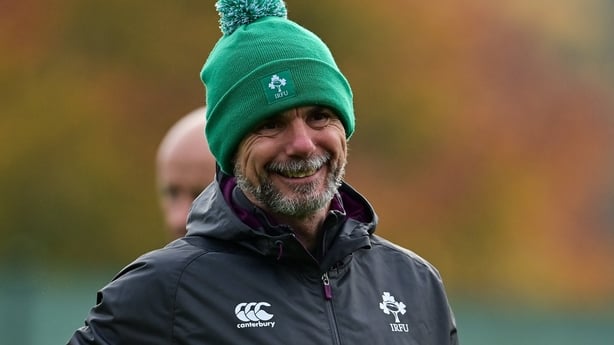
"I mean, they bounced back into camp. You can anticipate it's going to be a bit difficult but as soon as they're back together, they're talking, laughing, engaging. We've had two provinces who have had two similar experiences, which is great, so very close relationships and connections. I think they've settled in really well and I think they see the opportunity with these two days.
"I think the environment in the camp that we have is very open. Players are now having those conversations with each other. Because they've had similar experiences, they know what they're talking about, they know what they've been experiencing together.
"So that has been powerful, it has been an advantage for us over the last two and a half or three years, that these players do a lot of healing together."
The wrinkle in this Test series against South Africa is their head to head record. Ireland have won three in a row against the Springboks, with their last defeat to them coming on their tour of South Africa eight years ago.
The most recent of those Irish wins came in Pool B of the World Cup, but Rassie Erasmus' side ultimately had the last laugh as they recovered to win their record fourth title and second in a row. Ireland, meanwhile, suffered that familiar quarter-final exit.
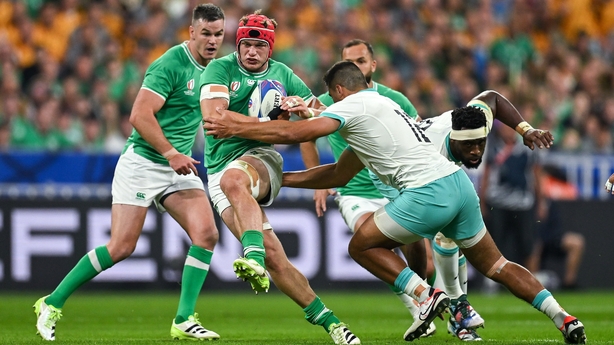
"It's hard to tell [if it was a mental issue]. We had not lost 20 minutes in a game, we had won every 20 minutes up to that point, so there was certainly something there. But it's hard to strip it apart.
"We feel we've made significant progress. I would say the context of our mental game is that there's always room for more growth because it's a shifting space. But we're on it, we're targeting it on a continuous basis.
"The players are much more open about the space as a collective, so it's not like secret conversations with people in corners out of the view of everyone else. The group is much more open and much more mature about how they approach their mental game and how they prepare for it," Keegan adds.
There's more than one way to skin a cat, and while we have never been given a real look behind the curtains in this Ireland squad, it's understood that there's a stark contrast in how they motivate themselves from how this Springbok group do so.
Those who watched the excellent 'Chasing the Sun' docu-series on the Springboks' World Cup campaign will have been able to see first-hand how Erasmus and his players use any and all external factors to their benefit. Any perceived sleight or injustice becomes fuel.
Keegan, who hasn't watched the series, believes there isn't a one-size-fits-all approach to mental preparation.
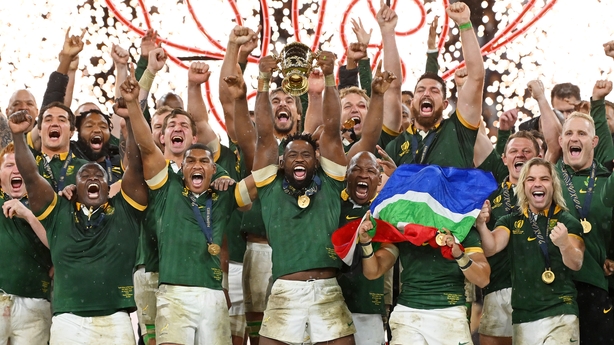
"It's hard for us to observe from the outside why a team is like South Africa and what it's able to do. It's very hard for us to observe that from the outside.
"That's the piece you can't see, it's very hard to analyse that because it's potentially cultural, it's potentially a mindset piece that they've built within the group and don't really talk about much. Whereas you can observe how they play rugby but not how they prepare mentally.
"From my perspective I focus on the group that we have, not comparing us against anyone else. I don't like the idea of going into a space and trying to pull something out of a space and trying to apply it here.
"We're from a very different journey than they are, we're at different stages, so I very much focus on the context we're in, where we're at, what we're trying to achieve, and making the right next step as opposed to 'they're doing this, let us do this.'"
One big area of progress highlighted by Keegan is around the ownership taken on by the less experienced players in the group.
There were real fears for how Ireland would cope both short and long term following Johnny Sexton's retirement, but Jack Crowley's performances in the Six Nations were a real positive, and the Munster out-half (below) is now settling into the role of first choice 10.
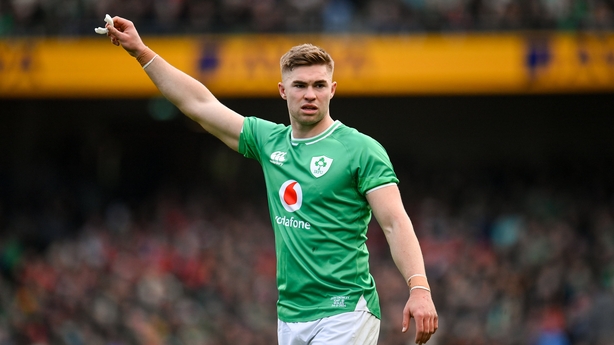
"That's what empowerment is. It's not creating a dependency. We don't want any dependencies here. If we're dependent on an individual player, and I know we have exceptional players, but if we're depending on an individual player we're at risk.
"Like all the bet players, they have a recognition of where the gap is, they're hungry and curious and they'll do the work to learn a grow until they get the knowledge.
"He [Crowley] is very pro-active in that space. He's done well and is progressing well. He knows he has more ground, that's what potential is, there's a lot more in there and he keeps tapping into that resource to find it within himself. He's worked exceptionally hard, he's done extremely well, but has a lot more to do.
"I think at that young age, if you look over the last seven, eight, nine years, they're getting more exposure earlier. They're getting into senior squads earlier, and we're seeing at a senior professional now they're real professionals, in terms of all aspects of how they prepare.
"That helps the transition, these guys are transitioning to a higher level of performance a lot quicker," Keegan added.
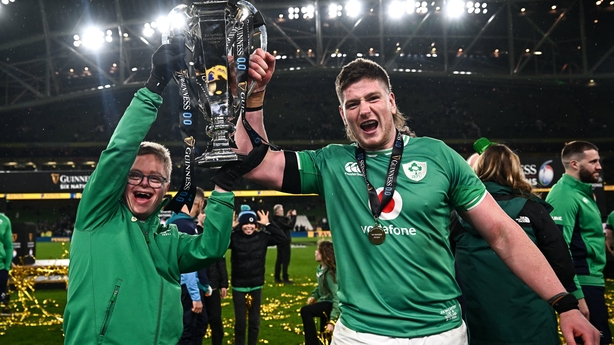
The greater maturity in younger players coming through can be largely attributed to the professionalism of the schools system, particularly in Leinster, where so many Irish players are coming through the production line.
But Keegan believes Irish rugby should be wary about relying so heavily on one avenue to populate the playing pool.
"It's a strength and a weakness. Our greatest strength is also potentially our greatest weakness. There's an opportunity for Irish rugby to be more diverse.
"We need teams within the four provinces to get stronger and that works well for Ireland. The stronger the other three provinces are the better for Ireland. We see Munster heading in the right direction. The more diverse that group is, the stronger a team will be for sure.
"There's a strength in having a big number of players out of a province that's progressing within the environment.
"There's a recognition that the more diversity we have within the group, the stronger we will become."


